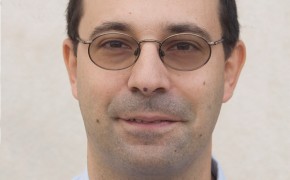Two trans-border thermal cities united, containing nine springs: a "water route" was established.
- Problems adressed: i) cross-border and inside-border competition in the exploitation of thermal sources; ii) difficult access for people over 65-yrs old to SPA programmes; iii) poor research in thermal waters.
- Context: Activity 2 of the Interreg project EUROCIDADE – a tecnonic fault originated nine springs in the area of two nearby trans-border cities, with thermal baths of very ancient traditions.
- Objectives are reached when a good percentage of the elderly population has accessed the thermal programmes (measurable), when the transborder cooperation positively impacts the local economy (measurable) and when there is a significant increase in the publication rate of ISI papers on thermal water (measurable).
- The practice is implemented: i) with common thermal programmes Chaves-Verín, including mutual publicity of all offers; ii) by a 50% reduction on the thermal well-being programmes for elderly (older than 65 years) and by personalizing each preventative or therapeutic programme; also, by special offers, such as in Chaves: kit, transportation, final dinner at the Casino and the lending of clothes/towels; iii) by establishing a Water Research Centre in Chaves.
- Main stakeholders: Associação de Termas de Portugal, Turismo Porto Norte, Sociedade Portuguesa de Hidrologia Médica (two of these stakeholders are in common with the InnovaSPA project).
- Beneficiaries: citizens over 65 years old; young people and adults (training and jobs at the Eurocidade).
Resources needed
- For kicking off (four years), about 1.8 million euros.
- To maintain it: about 800 thousand euros/year.
- Human resources: tens of thermal workers (administrative and others), some in both Mayor Houses, and about 10 trainers/researchers (new, to be hired). All in all, about 50 full time.
Evidence of success
The planned creation of a Water Research Centre is essencial at a global level (very little science).
Successes: Pedagogical Baths of Vidago; new knowledge and competences on cosmetology (analytic protocols and product development), applied at Chaves and Vidago; 30km Verín-Chaves cycling route; Thermal Passport.
Failure: Thermal School-Hotel at Verín did not happen (lack of private financing)
Difficulties encountered
Difficulties: different ES/PT laws for the use and treatment with mineral water; without the Verin School-Hotel, implementing research/training activities at Vidago is much harder, as is the mobility of workers.
Lessons learned: it is high-risk to anticipate private management of a School-Hotel
Potential for learning or transfer
Successes listed above should be replicated and the main failure (School-Hotel) only go ahead if private funding/management are secured well in advance or if public alternatives for funding/management are found.
The marks “Water Eurocity”, “Water and Thermal Route”, and “Water and Thermal Euroregion” are examples for other regions in Europe. The Water Research Centre is very much necessary.
Efficient knowledge and technology transfer happened in the varied utilization of mineral waters.The Thermal Route Model and the Water Eurocity format have been replicated in eight cities of eight different countries of the European Historic Thermal Towns Association; also, some cities in five South America countries are considering it (Colombia, Mexico, Argentina, Brazil, and Paraguay).
Inside InnovaSPA, thermal city Debrecen (Hungary) is considering a similar cross-border project with the also thermal city Oradea (Romania).
Please login to see the expert opinion of this good practice.
Tags: Materials, Health, Tourism, Heating








